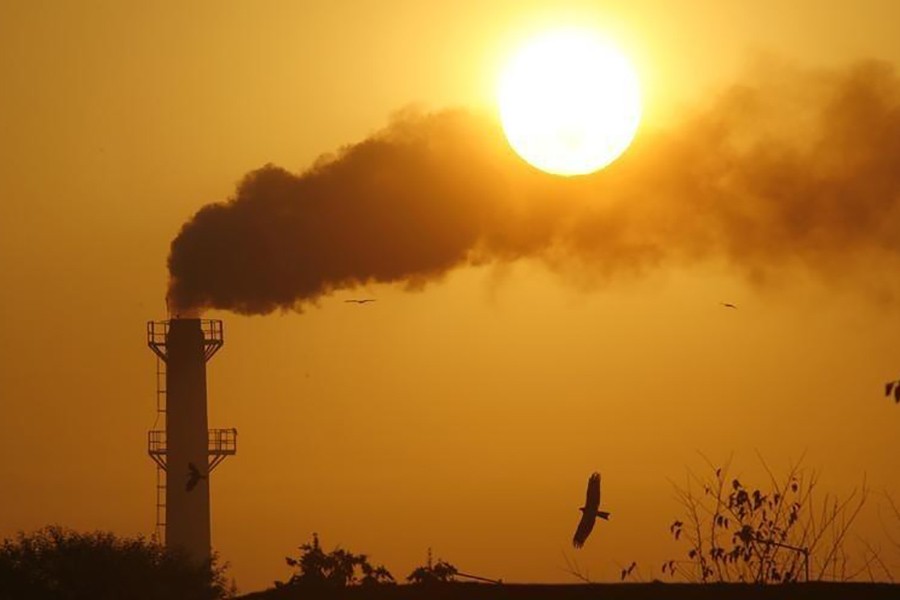Greenhouse gases levels in the atmosphere, the main driver of climate change, hit a record high last year, a specialised agency of the United Nations has said, calling for swift action to safeguard the future welfare of mankind.
"There is no sign of a slowdown, let alone a decline, in greenhouse gases concentration in the atmosphere despite all the commitments under the Paris Agreement on Climate Change," said Petteri Taalas, the secretary-general of the World Meteorological Organization (WMO), headquartered in Geneva, on Monday.
The WMO is the successor to the International Meteorological Organization, which was established in 1873. It formally came into existence in 1950 and became a UN specialised agency in 1951.
According to the WMO Greenhouse Gas Bulletin, the concentration of carbon dioxide, a product of burning fossil fuels that is the biggest contributor to global warming, surged from 405.5 parts per million in 2017 to 407.8ppm in 2018.
That increase was just above the annual average increase of 2.06ppm over the past decade.
Concentrations of the other two main greenhouse gases, methane and nitrous oxide, also hit record levels in 2018.
"This continuing long-term trend means that future generations will be confronted with increasingly severe impacts of climate change, including rising temperatures, more extreme weather, water stress, sea level rise and disruption to marine and land ecosystems," WMO said.
Irrespective of future policy, carbon dioxide stays in the atmosphere for centuries, locking in warming trends.
"It is worth recalling that the last time the Earth experienced a comparable concentration of CO2 was 3-5 million years ago," Taalas said.
Roughly 25 per cent of all emissions are currently absorbed by the oceans and biosphere - a term that accounts for all ecosystems on Earth.
The UN's Intergovernmental Panel on Climate Change (IPCC) has said that in order to keep warming below 1.5 degrees Celsius, net CO2 emissions must be at net zero, meaning the amount being pumped into the atmosphere must equal the amount being removed, either though natural absorption or technological innovation.


